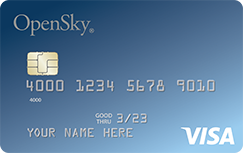According to the 2017 Consumer Financial Protection Bureau (CFPB) Consumer Credit Card Market Report, every day, U.S. consumers submit over half a million applications for credit cards. Because rejected applications may negatively impact your credit score, it’s wise to apply only for cards that you have a good chance of being approved for. These 4 tips will help you increase your approval chances.
#1 Know Thyself
Do you have bad, average, good, or excellent credit? Your credit score is the most important factor considered in your application. Unless you have good or excellent credit, it will be hard to get approved for a rewards card, but there are plenty of credit cards specifically for people with less than stellar credit that could be good options as well. According to the 2017 Consumer Financial Protection Bureau (CFPB) Consumer Credit Card Market Report, approval rates for applicants with the lowest credit scores have gradually been rising. The most important thing is to find a card that fits your credit rating before applying.
APPROVAL RATES FOR ALL MASS MARKET CREDIT APPLICATIONS

#2 Improve Your Credit Score
You can improve your credit score by keeping your credit utilization ratio (your balance divided by your credit limit) below 30% on each credit card account. Check your balances periodically during the month and pay off purchases to keep your credit utilization rate low.
#3 Report all of your Income
In addition to your credit score, issues will consider your debt-to-income ratio as an indicator of your ability to make payments. When reporting your income, be sure to include any money you earn, including money earned outside of your full-time job, but be careful not to inflate your income (providing knowingly false information constitutes credit card fraud, publishable by hefty fines and/or imprisonment).
#4 Ask for Reconsideration
If you have good or excellent credit and a low debt-to-income ration but are still denied, it’s a good idea to find out why.
- First, read the adverse action notice. The Fair Credit Reporting Act requires issuers to send you an adverse action notice if they deny you credit based on your credit report.
- Second, check your credit report on all three major credit bureaus – Equifax, Experian, and TransUnion — to see if there are any errors.
- Next, make sure all of the information you provided on the application is accurate. If you made a mistake, call the issuer’s customer service line and ask to amend the application.
- Then, call the issuer to ask why your application was denied. If there are errors or deficiencies that you are able to address, you can ask the issuer to reconsider the decision.
- Finally, if in the end the credit card you applied for isn’t a good fit and reconsideration is denied, the issuer may be able to offer you another card or a secured card.
Chase Sapphire Preferred® Card
With a 60,000 point new cardmember bonus when you spend $4,000 in the first 3 months of having the card, plus 2x points on travel and at U.S. restaurants — all for a $95 annual fee — this card is one of the top rewards card values available. Chase points are transferable to 9 airlines and 4 hotels, giving you the option of booking directly via these loyalty programs for some massively lucrative award redemptions in first & business class or at 5-star luxury hotels & resorts.
















